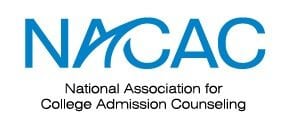Financial aid is available for students who are planning to enter college or who are currently in college (it’s not just available once for college students, it’s available every year for those in college).
Financial aid is awarded to students to help cover the cost of college. But if this is your first time (or even second or third time) applying for financial aid, the entire process can be confusing and overwhelming.
So we thought we’d break it down for you and help students and families understand just exactly what financial aid is and what you need to know about it.
Financial aid: help for families when paying for the cost of college.
Financial aid is there to help families cover the cost of attending college.
Financial aid comes from a variety of different sources including federal, state and private institutions as well as from the school itself.
There are many different ways a family and student can find financial aid to help with the costs of college.
Different types of financial aid
Grants – Grants are available through many different sources and do not need to be repaid. There are federal and state grants available to qualifying students. To find the best grants for you, do your research, and make sure to hit any deadlines that are required for this type of funding. Being awarded the grants you are eligible for can mean more “free money” and less out of pocket expense. When looking for grants, make sure you look at a college’s website, sift through grants.gov to find grants that apply to you, or look for certain types of grants depending on your financial records. Just make sure to fill out all the information correctly so your application doesn’t get delayed or held up causing you to miss out on some of this free money!
Scholarships – Scholarships awarded through admissions at the school are awarded based on merit. You can find additional departmental scholarships by researching the school. You can find additional outside, or private, scholarships to apply for through religious or community organizations, local businesses, civic groups, or even organizations (including professional associations) related to your educational field of interest and more. You are awarded these scholarships based on if you meet the criteria set by the institution issuing the scholarship. Scholarships can be geared towards a certain type of candidate (minority, women, graduate students) but can be awarded to those who meet certain grade and extracurricular requirements. Again, fill out these applications correctly and submit on time to ensure you don’t miss out on financial aid.
Loans – Loans are a type of financial aid that needs to be repaid after the student graduates. This is not free money as you need to pay back the full loan amount as well as any interest accrued on the loan. Generally loans are taken out through federal institutions or private organizations like banks and credit unions. Some common federal loans include Direct Subsidized Loans, Direct Unsubsidized Loans and Direct PLUS Loans. To find out more about student loans, visit banking websites, do a quick google search, or visit studentaid.gov for more. It’s important to know the terms and conditions of the loans and what it takes to apply since loans like this require a good credit score.
Who gets awarded financial aid?
Who gets awarded financial aid really depends on what type of aid we are talking about. But to be considered for financial aid, a student needs to be an eligible US citizen, enrolled in a college, and have a high school diploma or equivalent document.
Financial aid awarded to a student can be because of a variety of things but it’s a good idea to start with asking a college counselor or someone who is very well versed in financial aid documentation and the application process.
In order to even be eligible for financial aid of any kind, a student must fill out the FAFSA (Free Application for Federal Student Aid) form. This form allows families to input all the information needed to create and award financial aid to students. The FAFSA usually opens for students October 1 of each year and it’s best practice to fill out the form ASAP so you can have access to the huge pool of financial aid available to all students applying.
There are so many factors that go into a students financial aid package, such as household income, family size, assets/investments, and academic and extracurricular accomplishments. All of these collectively can all impact how much college costs for a given student.
How do you get financial aid?
The first step to being awarded any kind of financial aid is to fill out your FAFSA. You may also need to fill out a CSS profile. Some private institutions use the CSS Profile in addition to the FAFSA to determine student eligibility for need-based institutional aid. This CSS profile is used to help students to be awarded more aid in the form of non-federal financial aid.
Once the FAFSA and/or the CSS Profile are submitted and the student is admitted, the school will put a financial aid package together for that student. The award package will include any federal, state, merit, and other institutional aid the student is eligible for. All of this together can be used to pay for college expenses.
After you receive your award letters from each school it is important to compare them and determine whether the financial aid offering is enough to help you with the cost of your education at the school. You will need to accept the financial aid you have been awarded at the school you choose to attend. If you find you are coming up short in financial aid, you can apply for outside scholarships or let the school know if your family has any financial setbacks.
How is your aid determined?
Your aid is determined by a few factors. After you fill out the FAFSA correctly and completely, your application will be reviewed and you will be awarded financial aid based on your finances, your family’s finances, your EFC, any assets you or your family has, and more. The FAFSA calculates your family’s Estimated Family Contribution (EFC). Schools use your EFC to determine your financial need and the student’s eligibility for financial aid.
The most important thing to note is that anyone can fill out the FAFSA and anyone can get financial aid. How much you get varies but anyone can fill out the form. No matter your income or your parents or guardians financial status, everyone can get some kind of assistance.
The FAFSA is the most necessary step for any financial aid, including Direct Unsubsidized Loans, Grad PLUS Loans, and Parent PLUS loans. These types of loans are available without demonstrated financial need, so everyone should fill out the FAFSA. The family filling out the FAFSA does not need to be low income in order to qualify for these types of federal student loans. Even wealthy students and parents can get some money from these available low-cost loans.
How can you get more financial aid?
This is one area that a lot of students do not know about. Did you know that you can negotiate your financial aid package?
After you get your federal financial aid, you can appeal your financial aid award. You can state that it’s not enough money for you to attend your chosen school and it’s then up to the college to decide if they can award you more aid or not.
When appealing, have all of your facts ready and available and make sure you’ve outlined why the aid is not enough and why you are requesting more. The more homework you do and the more information you have prepared, the better your chances are of successfully appealing your aid and getting more money.
There is a lot of information out there that pertains to what students and families can do to pay for college.
Students and families need to know that there are ways that school can become affordable to attend – but the key is finding a great partner to help you through the process.
Partner with an expert.
The experts at POM College Consulting know that you don’t have the time to sift through all the information to find out the best ways to pay for college.
We’ve been helping students and their families find affordable solutions to paying for college, and we want to help you too.
Contact us today to learn how we can help you get Peace of Mind during the college planning process.




